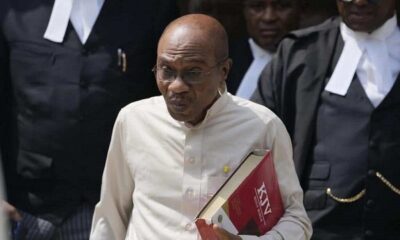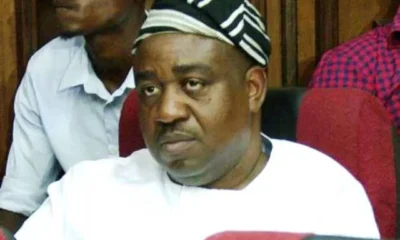Nigeria News
Forex fraud: EFCC warns banks against providing dollars to people not travelling abroad

The Economic and Financial Crimes Commission (EFCC) has warned banks against providing foreign exchange to customers who have no intention of travelling outside the country.
The anti-graft agency said there are clear indications that some bank customers present fake travel documents, including false flight bookings, to obtain foreign exchange, vowing to clamp down on any forex offenders, be the bank officials or customers.
A statement by the spokesman of the commission, Wilson Uwujaren, quoted the Commander of the Uyo zonal command of the commission, Nwanneka Nwokike, to have handed down this warning when he met with Chief Compliance Officers of Banks in the zone.
Nwokike said the EFCC under the leadership of Abdulrasheed Bawa, would not tolerate economic sabotage from any stakeholder in the banking sector.
“Always report bank officials who collude with criminal elements to collect foreign exchange. There are very strong indications that it is happening, … go back and sensitize your staff, to ensure that they always do the right thing because ‘doing the right thing’.”
“It has become the new normal; therefore proper verification of documents presented by customers for forex must be done. Again, the Commission will not entertain excuses, and will no longer look away when Banks fail to do their due diligence,” Nwokike was quoted to have said.
While responding to the issue of customers who book foreign flights and cancel after collecting foreign exchange from banks, the Deputy Zonal Commander, Hamidu S. Bawa, instructed the Compliance Officers to report such customers to the Commission.
He said, “When you observe such offenders, report them to the Commission and provide their BVN along, because after now, the liability will be on you and I’m sure you don’t want that to happen.”
The zonal commander further asked for a better working relationship that will ensure quick response by banks to letters from the Commission.
























